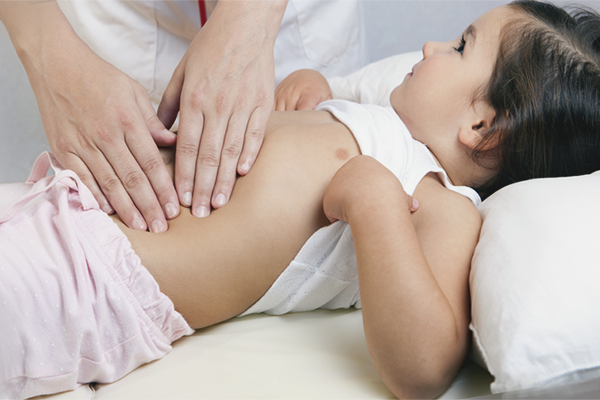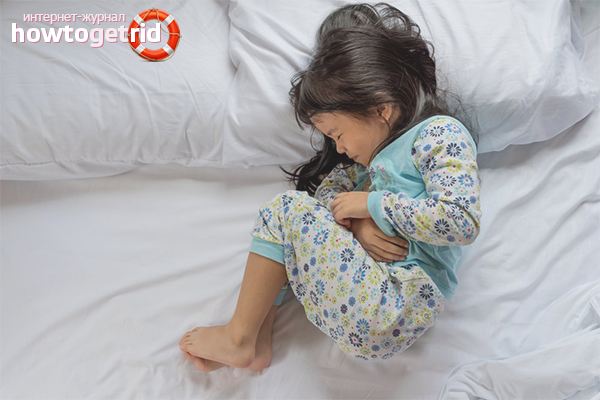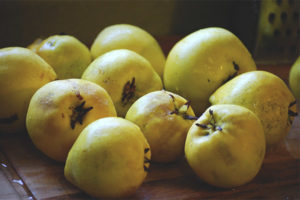The content of the article
When a child has a stomach ache, many experienced mothers start assuming, even before the arrival of the doctor, indigestion, poisoning, eating new, unfamiliar products. Diagnosis is complicated if the child is small and cannot precisely show where he has a pain and cannot tell about the nature of the pain. In such cases, some mothers with suspicion begin to suspect appendicitis. Of course, only a doctor can confirm or deny the diagnosis, but parents should be able to distinguish between some of the primary signs of appendicitis and, if necessary, urgently take the child to the hospital. Today we talk about the features of the course of appendicitis in children, the symptoms and causes of the disease, as well as the surgical treatment of inflammation.
Features of the course of appendicitis in children
Many people mistakenly believe that appendicitis occurs only due to intestinal blockage, when a person uses seeds and nuts with husks. Moreover, there is a myth that children have appendicitis. But it is not. Of course, the appendix may be inflamed due to ingestion of food debris, but this is not the only reason. Appendicitis can become inflamed even in babies who, besides mother’s milk, have not tried anything at all.
Appendicitis is an inflammation of the appendix, a small vermiform process of the cecum. Inflammation can be caused by various reasons - we will talk about them a little later. Most often, appendicitis develops in adolescents - 13-19 years. More rarely, an appendix can become inflamed in children of primary school age. Appendicitis can also affect the infant, but this is extremely rare.
The peculiarity of the course of appendicitis in children is that the disease develops extremely rapidly. Everyone knows that with appendicitis you need to see a doctor as soon as possible. Surgery can save a person from peritonitis - there is simply no other effective treatment for appendicitis.In the case of children, you need to respond as quickly as possible. The fact is that some organs and parts of the peritoneum in children are not developed and are formed only by the adolescent period. This is a large omentum, which is formed only in the period of puberty of a teenager. He is able to protect and isolate the inflamed area. Since babies have a large gland that is not developed yet, appendicitis proceeds rapidly, without being known to the last.
Among the features of the course of appendicitis in children can be called the localization of pain. In adults, "appendicitis" pain is located on the right side below the navel. Features of the structure of the child's body suggest that pain in appendicitis will be localized above the navel - in infants 3-4 cm, in children under three years old - 2 cm, in a child 10 years old - only 1 cm. as well as the appendix are displaced. So what are the symptoms of a child can tell about a possible appendicitis?
How to recognize appendicitis in a child
Here are some symptoms that should alert parents.
- The very first thing that happens to a child is that his health will deteriorate.This may be accompanied by various symptoms - apathy, tearfulness, bad mood, refusal to eat, etc. From this point on, the mother should keep a close eye on the crumbs and pay attention to the accompanying manifestations and signs.
- Appendicitis is necessarily accompanied by pain in the abdomen. The child may complain of spatial pain in the abdomen. Often children, especially small ones, do not indicate the exact location of the pain, they say that the stomach as a whole hurts. In some cases, the pain may give in the sides, pelvis and even the spine.
- When figuring out what and where the child has pain, try to calm the child down and calm down herself, often older children can lie and not complain to the last about the pain, as they are afraid of surgery, hospitals, doctors, etc.
- It is important to understand that inflammation can develop in a matter of hours and will make itself known suddenly. The stomach can immediately begin to hurt badly in school or kindergarten, on the street, etc.
- If the pain in the abdomen is minor, watch the baby for a while. On the first night, the child may not sleep well, he constantly screams, cries, whimpers, groans.
- Try to touch the child's abdomen - if he pulls back your hand, pulls away, screams sharply from the pain, most likely it is appendicitis.
- It is extremely difficult to diagnose inflammation in young children during the first months of life, since many of the symptoms may be similar to infantile colic. Unfortunately, in most cases, appendicitis in infants is diagnosed after peritonitis.
- Follow the baby should be very carefully. When appendicitis baby constantly crying, regardless of the time of day. With colic, children usually naughty and cry at the same time of day. The baby can press the legs under itself, thumps them, screams when touching the abdomen, tries to lie on the left, painless side.
- Very often, appendicitis at any age is accompanied by profuse vomiting and nausea, diarrhea. In diarrhea, mucus may be present in the feces. Sometimes disorders with the stool can be caused not by diarrhea, but on the contrary, by constipation.
- The inflammation can be so extensive that the pain goes to the urogenital system. Older children may complain of pain when urinating, young children just cry in the process.
- Like any inflammatory process, appendicitis is accompanied by fever. It can be as long subfebrile temperature not exceeding 37.5 degrees, or very high up to 40 degrees. But not in all cases, the temperature can be considered a fundamental symptom, sometimes appendicitis occurs without increasing it.
- A child with appendicitis may become pale, and inflammation is often accompanied by excessive thirst and dry mouth.
- With weak pains, the child can squat down during the game and press his right leg to his stomach in search of a comfortable, painless pose.
- Another way to detect appendicitis in a child is to feel his stomach. In a healthy baby, the abdominal area should be soft. A hard and tense stomach speaks of inflammation.
- In the acute stage of appendicitis, the child will not be able to stand up straight and even walk a few steps - this will bring him severe pain on the right side of the abdomen.
- Since it is always difficult to diagnose appendicitis in a child, doctors use this method. The baby should be placed on a flat surface, lift the right leg and bend it at the knee.If at the same time a sharp pain in the area of the right side of the abdomen pierces the child - there is no doubt, it is appendicitis.
If you notice at least a few of the above symptoms in a child, you need to consult a doctor as soon as possible to ascertain the exact diagnosis.
Causes of appendicitis in children
The causes of inflammation of the appendix are in many ways similar to an adult appendicitis, let's try to examine them in more detail.
- In order for the appendix to become inflamed, two conditions must be met: a pathogen infection in the rectal cavity and blockage of the process. The first can occur in case of poisoning, ingestion of microbes, bacteria.
- The blocking of the process can occur for various reasons - from the banal features of the physiological structure of the appendix to blockage with foreign objects. The passage to the appendix can be closed by fecal masses, the remnants of undigested food - husks of seeds, nuts, etc.
- The risk of appendicitis increases if the child’s body is weak and unable to resist the inflammatory process.Immunity can be reduced due to frequent illness, malnutrition, constant overheating of the child.
- Appendicitis in children often occurs because foreign objects enter the intestine. It happens that children eat berries with pits, fish bone can enter the body, or in general, small parts from a toy. This can cause blockage of the appendix.
- Sometimes the blockage of the appendix can occur against the background of the active reproduction of worms in its cavity.
In general, even doctors can not accurately say what caused the inflammation of the appendix in a particular case. The above symptoms are very conditional and only increase the risk of appendicitis, although they cannot fully explain the problem.
What to do if you suspect appendicitis in a child
If you notice some symptoms in the child, which we have described to you above, you need to act immediately. It is better to be safe and refute the diagnosis in the hospital than to hope for the best and wait for complications at home.
If you suspect appendicitis in a child, you need to get to the hospital as soon as possible, where there are operating surgeons.Consider whether it is advisable to call an ambulance or you can get to the hospital faster by car. In no case should you give your child antipyretic, painkillers, laxatives, or other drugs that can reduce the severity of symptoms of the disease. This makes it difficult to make a correct diagnosis.
In addition, in no case should the child be given preparations for the intestines - some compounds may provoke a rupture of the inflamed appendix ahead of time. Also try not to water or feed the baby, because you may need an emergency operation. Another prohibition - do not apply a hot compress to your side until you know the exact diagnosis. When appendicitis heat only strengthens the inflammatory process. You need to beware of any warming procedures - hot enema, sitting in a bathtub with hot water, etc. But the cold can be applied, it will narrow the blood vessels and reduce the manifestation of pain. Wrap a piece of ice or ice cream in a bag and a towel, attach it to your stomach - where the pain is most.
You need to put the child in a comfortable position that gives him less pain,and then take him to the doctor as soon as possible. If the doctor confirms the diagnosis of appendicitis, the baby will have surgery.
There is no need to be afraid of surgery. To date, surgery to remove a sore appendix is considered one of the most simple and common. A few decades ago there were attempts at conservative treatment of appendicitis - inflammation was healed with antibiotics, etc. However, to date, such treatment is ineffective for several reasons. First, the appendix after such exposure sooner or later begins to hurt again - the inflammation resumes. The second reason - the process can break at any time, it is a big risk. Another reason - inflammation becomes chronic, it is expressed by fewer symptoms, but slowly affects the neighboring organs - the rectum, peritoneum, etc. By removing an unnecessary process surgically, we solve this problem once and for all.
Complications of appendicitis are deadly. If the pain suddenly ceased, it may indicate serious consequences, most likely, peritonitis occurred - the intestine broke and its contents fell into the abdominal cavity.To prevent this, you need to consult a doctor as soon as possible.
How to protect a child from appendicitis
As noted, appendicitis in children can occur for various reasons. To protect your child from inflammation of the appendix, you need to follow a few rules of prevention.
- Food should be correct, balanced, according to the age of the child.
- It is necessary to prevent the development of constipation, especially chronic. To do this, you need to eat more fiber, eat dairy products, limit the consumption of simple carbohydrates, drink more pure water. After all, fecal stones, which are formed during long-term constipation, are most often the cause of blockage and inflammation of the appendix.
- Monitor the health of the gastrointestinal tract - do not overeat, treat diseases of the stomach and intestines in time, regularly do fasting days, clean the intestines with laxative products.
- Watch your child so that he does not take foreign objects into his mouth. Remove all small parts of toys from the access area. Make sure that the child does not swallow the bones from the fruit and other items that you need to spit out.
These rules do not guarantee you 100% protection against appendicitis, but they are completely capable of reducing the risk of its development.
Appendicitis is a complex and mild disease at the same time. On the one hand, surgery to remove appendicitis is quite simple, the postoperative period is short - a person recovers quickly. On the other hand, the diagnosis of appendicitis is quite complicated, especially if the parents associate the pain in the abdomen with food poisoning and do not take the child to the hospital to the last. Delay can cost a kid life. So do not hesitate and do not be lazy to once again seek medical help. Take care of the child, because he has no one else to hope for.
Video: appendicitis symptoms in children












To send